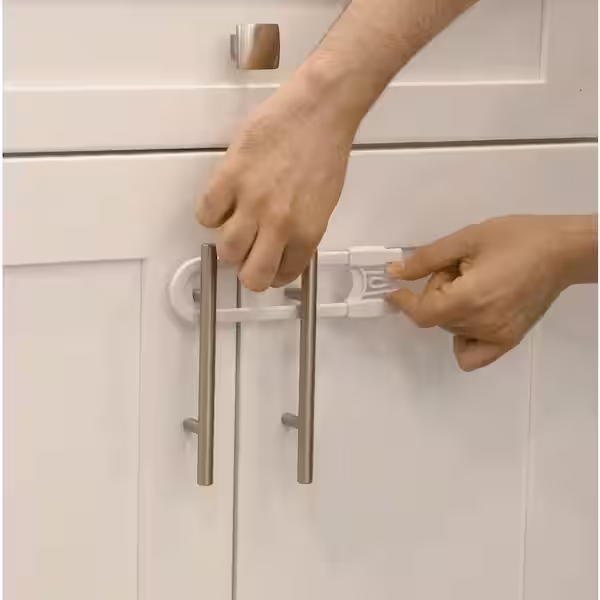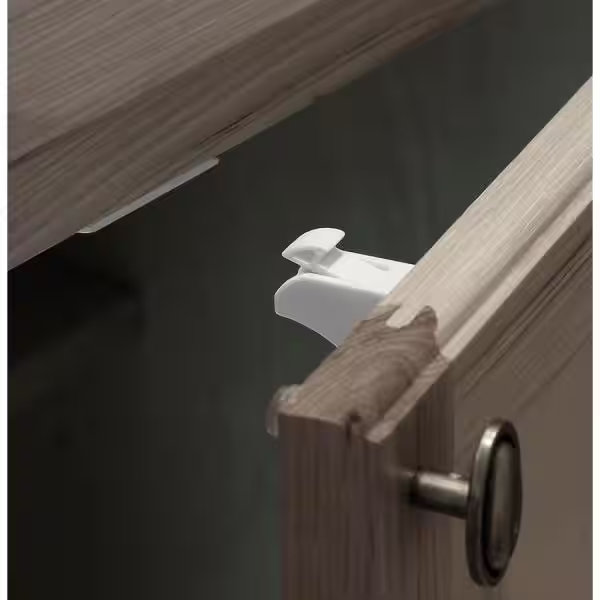Introduction to Cabinet Locks
Cabinet locks are essential tools for securing personal belongings and maintaining safety in homes and offices. They provide peace of mind by preventing unauthorized access to cabinets containing valuable items, sensitive documents, or dangerous substances. With a variety of styles available, including keyed locks, combination locks, and electronic locks, there is an option suited to every need and environment.
Understanding the different types of cabinet locks and their installation methods is crucial for effective security. This article explores the various types of cabinet locks, their advantages, and tips for choosing the right lock for your specific needs. By making informed decisions, individuals can enhance security and protect their possessions.
Types of Cabinet Locks
Keyed Locks
Keyed locks are one of the most traditional forms of cabinet security. They require a physical key to unlock, providing a straightforward and reliable option for securing doors. This type of lock is commonly found in residential and commercial settings, ensuring limited access to stored items.
One notable advantage of keyed locks is their simplicity. They are often easy to install and require minimal maintenance. However, it is important to keep keys in a secure location to avoid unauthorized access. By utilizing keyed locks, individuals can enhance the security of their cabinets effectively.
Combination Locks
Combination locks offer a more advanced level of security compared to keyed locks. These locks require users to enter a specific series of numbers or symbols to unlock the cabinet. Combination locks provide the added benefit of not needing physical keys, reducing the risk of losing them.
Moreover, these locks can often be reset easily if the combination is forgotten. This feature ensures that access can remain restricted even if the original owner no longer remembers the lock’s code. By opting for combination locks, individuals can enhance both security and convenience.
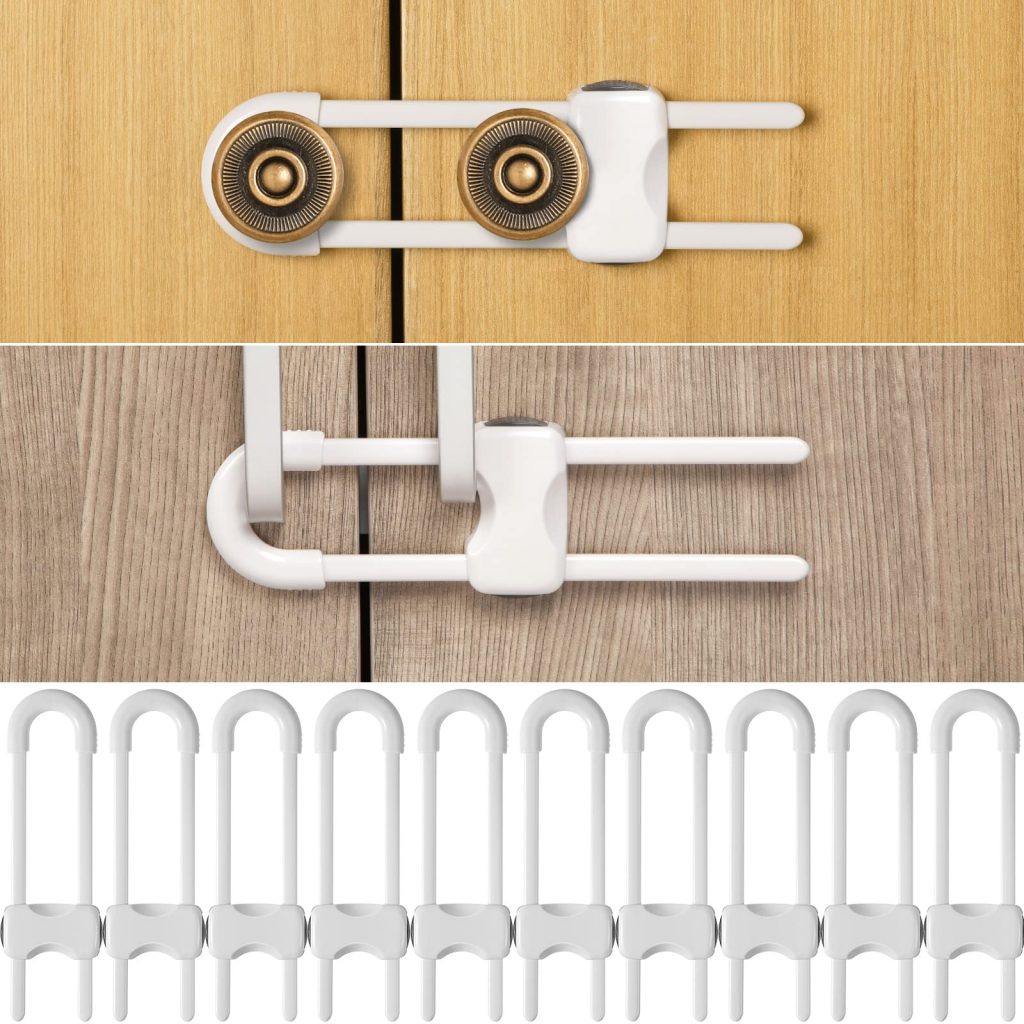
Benefits of Installing Cabinet Locks
Enhanced Security
One of the primary benefits of installing cabinet locks is enhanced security. By securing cabinets, individuals can protect valuables, sensitive information, and hazardous materials from theft or misuse. This added layer of protection is crucial in environments such as homes, schools, and workplaces where privacy and safety are paramount.
In child-proofing scenarios, cabinet locks are highly effective in preventing children from accessing harmful items like cleaning supplies and medications. By implementing appropriate locks, caregivers can ensure a safer environment while reducing potential accidents.
Organization and Control
Cabinet locks also promote organization and control over personal belongings. With secured cabinets, individuals can designate specific areas for various items, reducing clutter and ensuring that everything has its proper place. This organization enhances efficiency, particularly in busy environments like offices or kitchens.
Moreover, knowing that cabinets are securely locked allows individuals to focus on their tasks without worrying about unauthorized access. This control fosters a sense of responsibility and accountability, whether in personal or professional settings. Investing in cabinet locks ultimately leads to a more organized and efficient space.
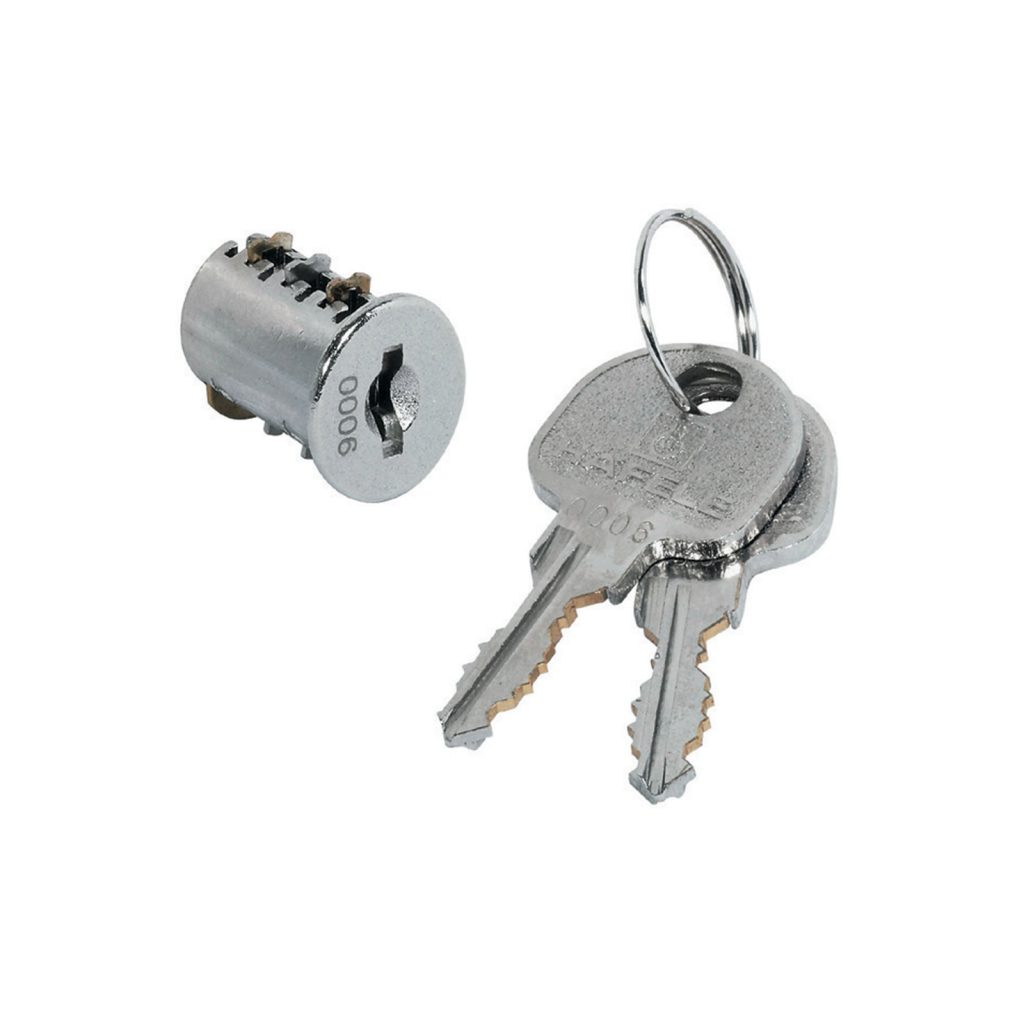
Choosing the Right Cabinet Lock
Assessing Security Needs
When selecting cabinet locks, assessing security needs is essential. Consider the specific items that require protection and the potential threats faced in a given environment. For example, high-value items or sensitive documents may require more robust locking mechanisms compared to cabinets containing general supplies.
By understanding the level of security necessary, individuals can choose locks that best suit their needs. Assessing security requirements helps ensure that the selected locks provide adequate protection while remaining user-friendly.
Installation and Maintenance
Proper installation and maintenance are crucial for the effectiveness of cabinet locks. Many locks can be installed easily with basic tools. However, for those unfamiliar with installation processes, seeking professional assistance may be beneficial to prevent errors that could compromise security.
Regular maintenance is also essential in ensuring the longevity of cabinet locks. Cleaning and lubricating mechanisms can prevent wear and enhance their performance. Additionally, periodic checks for any signs of damage or malfunction can help individuals address issues before they become significant problems.
Innovative Cabinet Locking Solutions
Electronic Locks
Electronic locks represent a modern approach to cabinet security. These locks operate using keypads, smart cards, or biometric recognition, providing a high level of security without the need for physical keys or combinations. Users can easily change access codes and manage multiple users, making electronic locks versatile solutions for various environments.
For businesses, electronic locks can streamline access control, making it easier to monitor who has access to specific cabinets. Additionally, many electronic locks come equipped with alarms, providing extra security by alerting users to unauthorized access attempts. By adopting electronic locks, individuals and organizations can enjoy enhanced convenience and peace of mind.
Smart Lock Technology
Smart lock technology takes electronic locking mechanisms a step further by connecting to smartphones or smart home systems. These locks allow users to control access remotely, monitor activity, and receive notifications about cabinet usage. Smart locks provide unparalleled convenience, particularly for those who frequently manage multiple users or need to grant temporary access to visitors.
This technology can enhance both home and office security by limiting physical interaction with keys or codes. Furthermore, users can easily lock or unlock cabinets from a distance, enhancing their overall experience. As smart lock technology becomes more prevalent, it offers an exciting option for those seeking advanced security solutions.
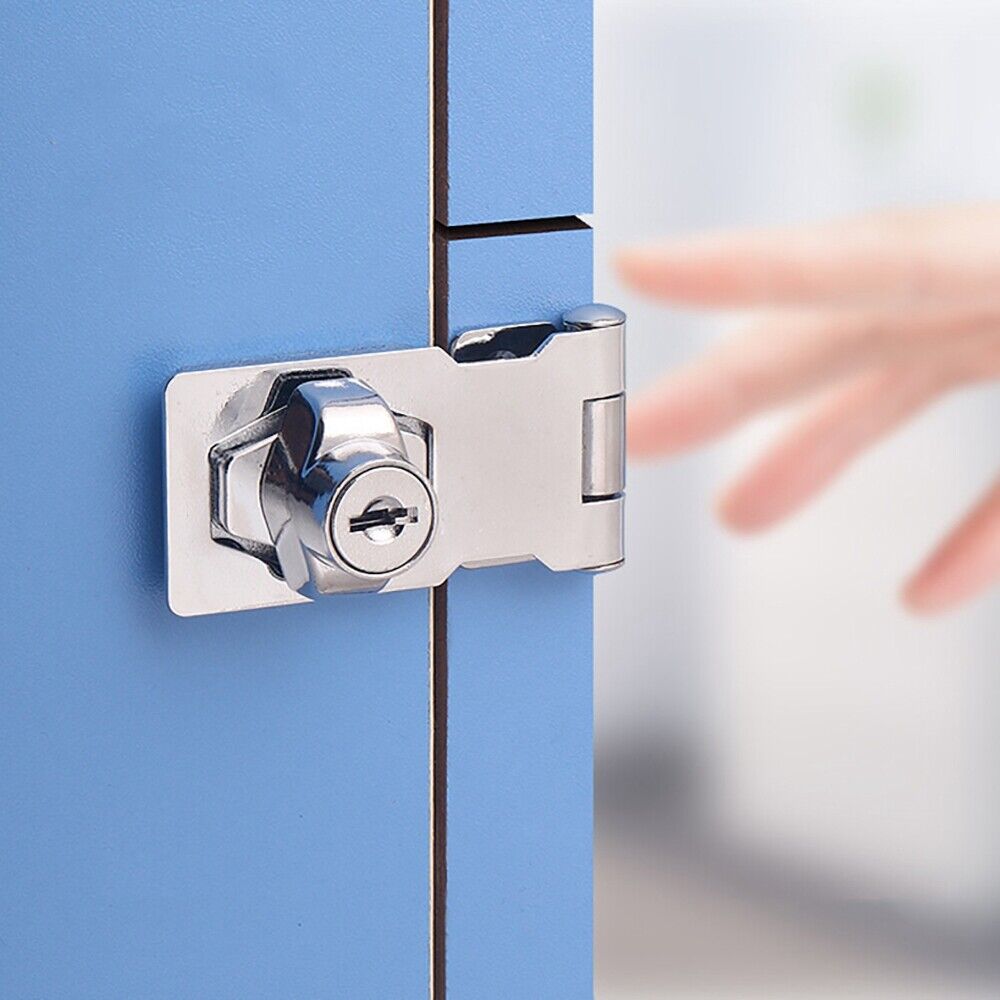
Practical Uses for Cabinet Locks
Home Security Applications
Cabinet locks play a vital role in home security, ensuring that valuable items and sensitive materials remain protected. For instance, locking away personal documents, electronics, or jewelry can prevent theft and unauthorized access. This extra security provides homeowners with peace of mind, knowing that their belongings are safeguarded.
In addition, families with young children benefit significantly from cabinet locks, as they keep dangerous substances like cleaning products and medicines out of reach. Implementing cabinet locks helps create a safer home environment, allowing caregivers to focus on everyday activities without fear of accidents.
Office and Commercial Applications
In office and commercial settings, cabinet locks serve essential purposes in protecting confidential information and securing valuable equipment. Businesses often store sensitive data, tools, and supplies in cabinets that require protection from unauthorized individuals. Effective locking mechanisms prevent data breaches and loss of important resources.
Additionally, implementing cabinet locks can help regulate access to commonly used office supplies. By designating who can access certain items, companies can minimize waste and track inventory levels more efficiently. The benefits of cabinet locks extend beyond security; they enhance overall organizational practices within workplaces.
Overcoming Common Challenges
Addressing User Resistance
While the importance of cabinet locks is clear, some individuals may resist implementing them. The perception that locks complicate access can deter users from adopting security measures. To overcome this challenge, it is essential to communicate the benefits of cabinet locks effectively.
Demonstrating how easy and convenient locks can be can help ease concerns. Providing training on using different locking mechanisms, such as electronic or smart locks, may further encourage acceptance. By promoting their advantages, users can be more inclined to utilize cabinet locks, resulting in enhanced overall security.
Understanding Compatibility Issues
When selecting cabinet locks, compatibility with existing furniture or cabinetry can be a concern. Some cabinets may have unique designs or materials that could complicate lock installation. Therefore, researching available options tailored to specific cabinet types is essential.
Utilizing adjustable locks or locksets with versatile mounting options can address compatibility challenges. Moreover, consulting with professionals or manufacturers can provide valuable guidance on selecting the right lock for specific cabinets. Ensuring compatibility ensures a seamless installation process while maintaining security effectiveness.
Future Trends in Cabinet Locks
Advances in Lock Technology
The future of cabinet locks holds exciting potential as technology continues to advance. Innovations such as biometric locks that utilize fingerprints offer a level of security previously unattainable. These advanced locks ensure that only authorized users can gain access, combining convenience and robust security measures.
Moreover, the integration of artificial intelligence (AI) in lock systems may provide enhanced monitoring and customizable features. As security becomes a growing concern, these technological advancements will likely drive the development of more intelligent cabinet locking solutions.
Customization and Personalization
The trend towards customization and personalization is also likely to impact the cabinet lock market. Consumers increasingly seek products that cater to their individual needs and preferences. By offering customizable locks, manufacturers can tap into this demand and provide tailored solutions.
Options such as color, material, and keypad design can help users create lock solutions that align with their specific styles and preferences. This trend enhances user engagement and satisfaction while promoting a sense of ownership over security solutions.
Conclusion
Cabinet locks are essential tools for ensuring safety and security in homes and workplaces. They provide enhanced protection for personal belongings and promote organization in various settings. By understanding the different types of locks and their benefits, individuals can make informed decisions about their security needs.
Choosing the right cabinet locks involves considering security requirements, installation methods, and maintenance practices. As innovative locking solutions emerge, such as electronic and smart locks, security continues to evolve, providing consumers with more options than ever. By implementing effective cabinet locks, individuals can enjoy peace of mind, knowing their possessions are secure and protected.
